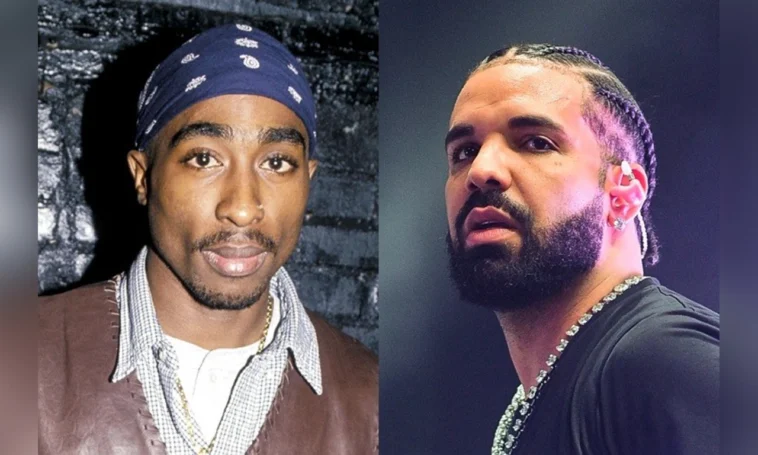Drake Ordered to Remove AI-Generated Tupac Voice from Diss Track. Drake has been warned by Tupac Shakur’s estate to remove a diss track with an AI-generated voice. Drake posted “Taylor Made Freestyle” on Instagram, criticizing Kendrick Lamar. AI-generated Tupac Shakur rhymes attracted everyone’s attention.
“Not only is the record a flagrant violation of Tupac’s publicity and the estate’s legal rights, it is also a blatant abuse of the legacy of one of the greatest hip-hop artists of all time.” Howard King
Howard King, representing Tupac’s estate, ordered Drake delete the tune from all public platforms by midday Thursday in a cease-and-desist letter acquired by NBC News. Failure to comply would result in the estate suing the Canadian artist.
King believes using Tupac’s voice without permission breaches his publicity rights and abuses his legacy. Estate says they would never accept such use.
The letter also criticized the track’s Kendrick Lamar references. It praised Lamar’s appreciation for Tupac and denounced the diss track’s attack. The song’s AI-generated Tupac begs Lamar to retaliate to Drake’s prior trash single. The estate strongly denies that Tupac endorsed lyrics like “Kendrick, we need ya, the West Coast saviour”.
In addition to removing the tune, Tupac’s estate wants damages and all record revenues. Drake’s improper exploitation of Tupac’s likeness has damaged his reputation and finances, they say. The diss track’s issue goes beyond Tupac’s estate. Snoop Dogg, another famous rapper whose voice was AI-generated for the track, expressed confusion on his Instagram story.
AI in music has been debated for its ethical implications and creative boundaries. Drake’s song is another example of technology changing the music industry. As the legal battle approaches, the incident highlights the necessity of honoring intellectual property rights and Tupac Shakur’s legacy. It also concerns the ethical usage of AI in music and its impact on creative integrity.
Drake’s lawsuit with Tupac’s estate over the diss track’s AI-generated vocals illustrates how technology, artistic expression, and IP rights intersect in music. As AI blurs authenticity and imitation, artists and estates face new challenges in protecting their legacy and creative works.
Drake’s unlawful use of Tupac’s voice highlights AI-generated content ethics. Technology fosters creativity and innovation, but it also poses risks to artists’ rights and estates.
Drake’s lawsuit against Tupac’s estate highlights the need for AI music standards. As AI spreads, policymakers, artists, and stakeholders must work together to balance innovation with creative integrity and IP rights.
The incident raises problems regarding artistic expression and technology’s impact on music beyond legal issues. Some view AI-generated content as a curiosity or experiment, but others worry it may devalue human creativity and authenticity.
Digital musicians should heed Drake and Tupac’s estate’s dispute. As technology advances, artistic creation requires integrity, respect, and accountability. This is the only way the music industry can preserve its rich cultural history while accepting technical advances.




Join the Community and Be a Part of the Conversation
You must be logged in or registered to post a comment.